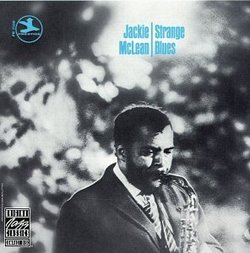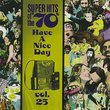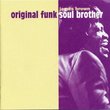| All Artists: Jackie Mclean Title: Strange Blues Members Wishing: 2 Total Copies: 0 Label: Ojc Release Date: 7/1/1991 Genres: Jazz, Pop Styles: Modern Postbebop, Bebop Number of Discs: 1 SwapaCD Credits: 1 UPCs: 025218635424, 0025218035422, 025218035415, 025218035422, 025218035446, 025218635424 |
Search - Jackie Mclean :: Strange Blues
CD DetailsSimilar CDs |
CD ReviewsA cool curio Matthew Watters | Vietnam | 06/18/2009 (4 out of 5 stars) "The conventional critical wisdom on Jackie McLean divides his career into a youthful, Charlie Parker-influenced period and a 1960s reach into the avant garde, a la Coltrane, divided by a transitional period. But, to these ears, it's in that transitional period, c. 1957, when McLean was developing a more adventurous style but still playing fairly straigtahead jazz as a sideman with everyone from Gene Ammons to Charles Mingus, that McLean had his most appealing tone and did his most attractive work as a soloist. These sides come from that fertile period, and, while it's tempting to downgrade an album like this as just a bunch of leftovers, these are pretty darned tasty leftovers. "What's New" is a superb quartet performance with Mal Waldron on piano that finds something new in this old chestnut -- and was clearly left unreleased because of some problems with the tape in the first few seconds of the recording. The sextet recordings were also likely left unreleased because the recording balance on Ray Draper's tuba is just way out-of-balance (he's almost comically prominent compared to McLean and trumpet player Webster Young, and I giggled when he first entered), but the performances are ultimately damned interesting. The liner notes dis Draper, and maybe it's not the best work he ever did, but he's pretty far out, in my book. Even the album closer, "Not So Strange Blues", is a brilliant, extended McLean solo rather unlike many others you'll hear from him in this period, and the track is marred because it cuts out just before the piano solo would be. But, to ears trained by later albums (e.g., Davis' Milestones) that forego piano solos altogether, it doesn't really hurt anything. In short, all the flaws here are technical, not musical. While this is really only a three-star set, and not an essential purchase by any means, it gets an extra star for being fleet, entertaining and just a little weird. And for Mal Waldron...."
|




